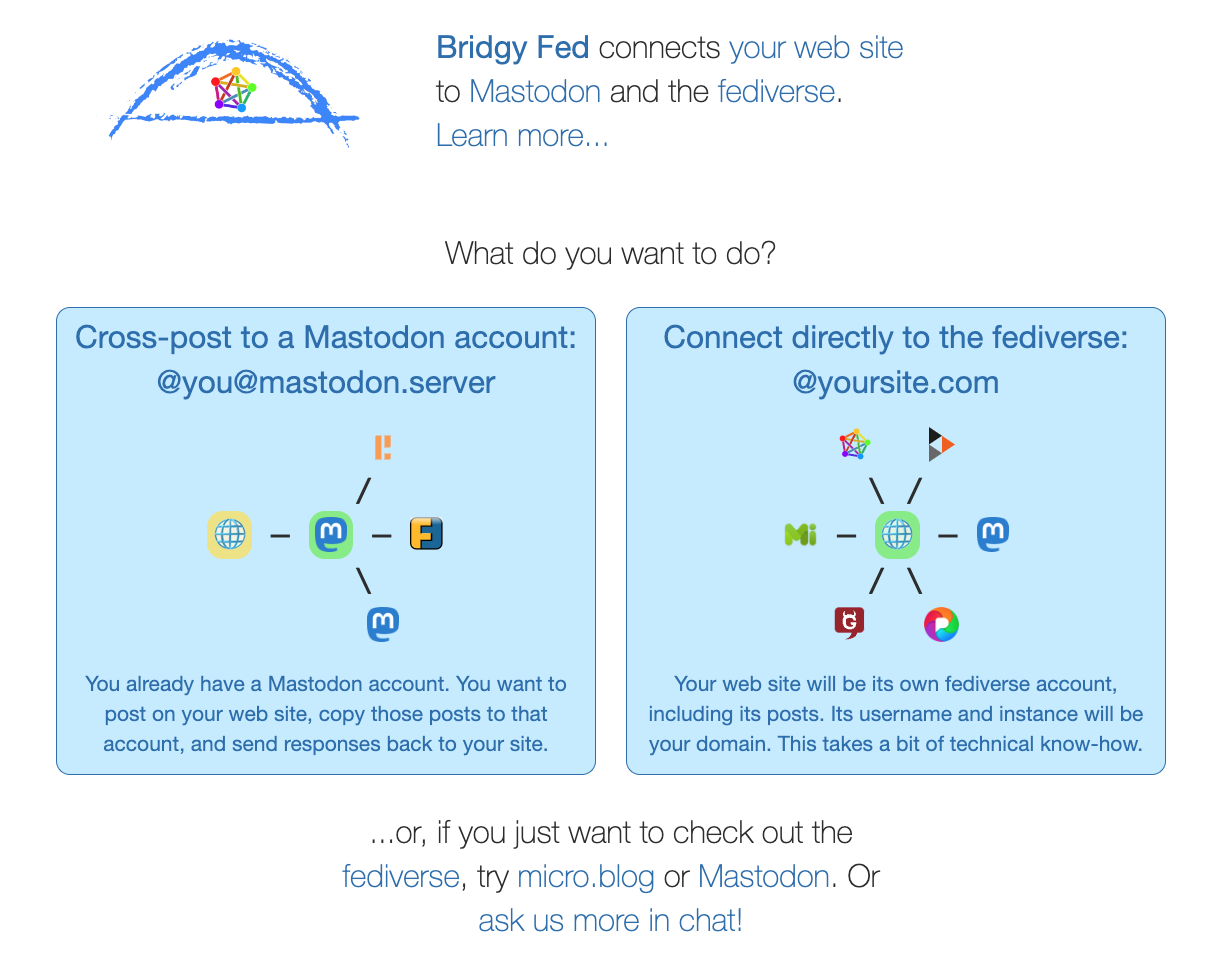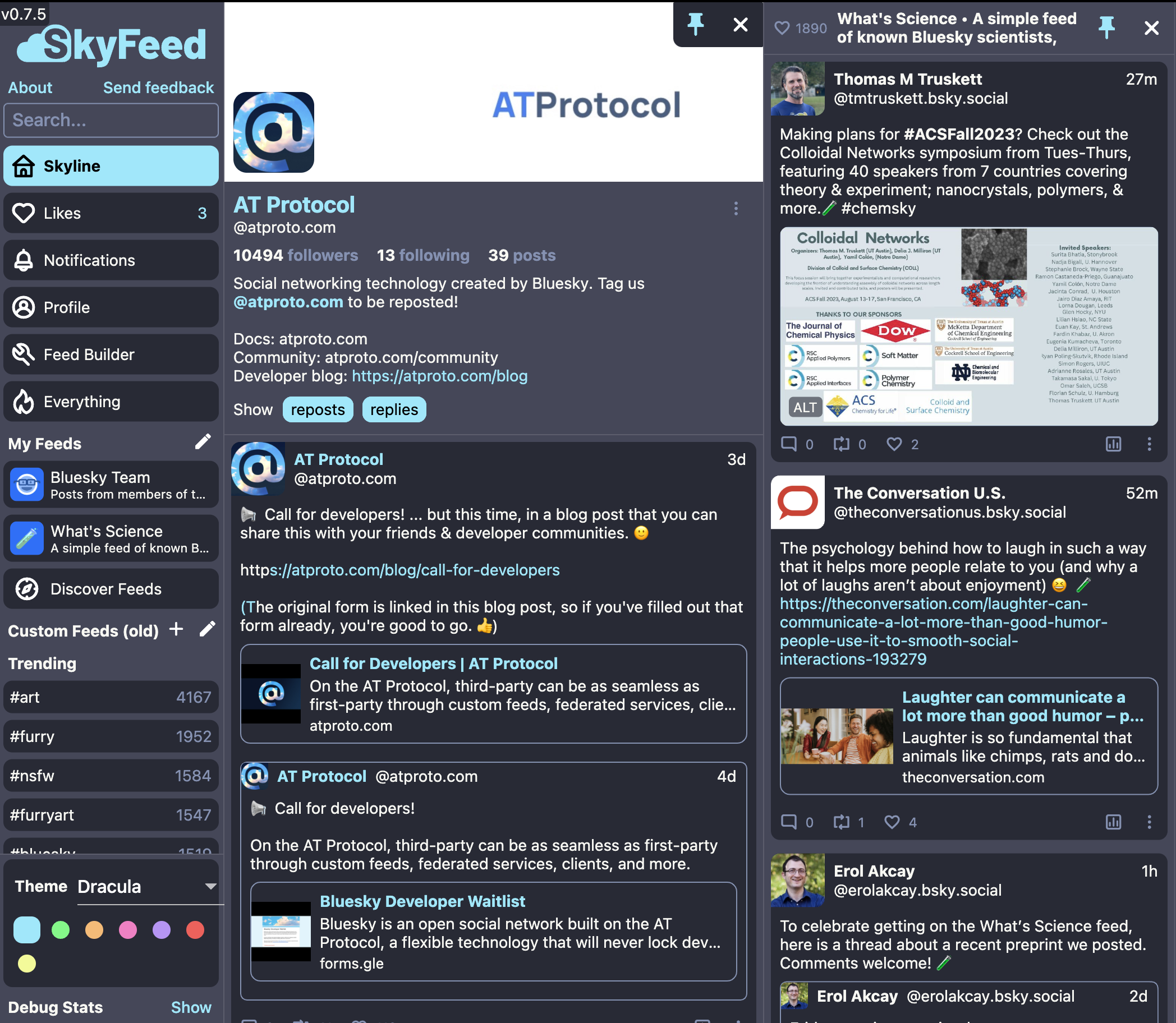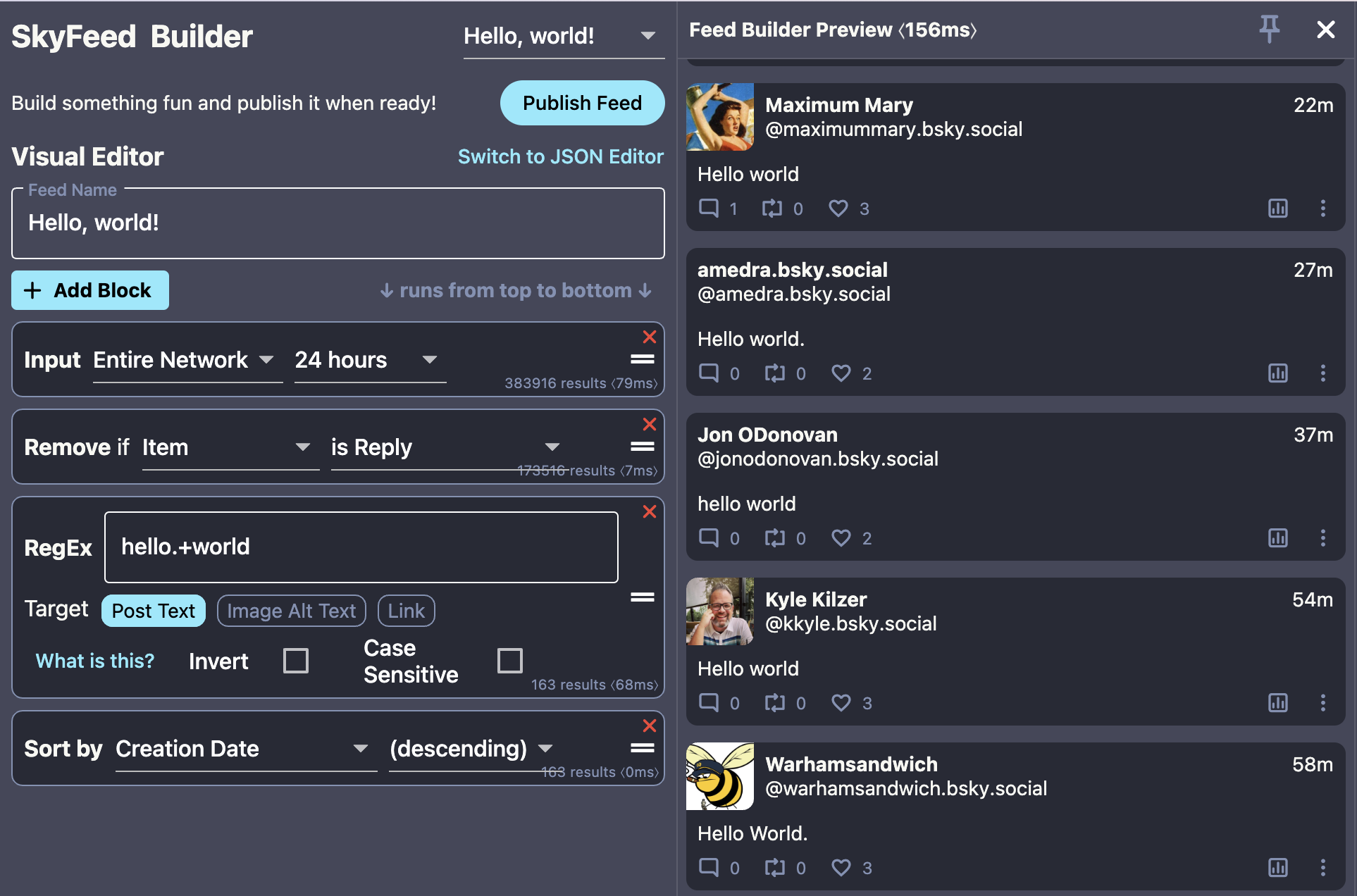In March, we announced the AT Protocol Grant program, aimed at fostering the growth and sustainability of the atproto developer ecosystem, as well as the first three recipients.
We’re excited to share the second batch of grant recipients with you today!
In this batch, we distributed $4,800 total in grants. There is $2,200 remaining in the initial allocation of $10,000. Congratulations to all of the recipients so far, and thank you to everyone who has applied — we're very lucky to have such a great developer ecosystem.
Reminder: You can apply for a grant for your own project by filling out this form. We’re excited to hear what you’re working on!
Blacksky Algorithms — @rudyfraser.com ($1000)
Blacksky is a suite of services on AT Protocol that all serve to amplify, protect, and provide moderation services for the network’s Black users. It also doubles as a working atproto implementation in Rust. AT Protocol creates the opportunity to build community in public (e.g. custom feeds, PDS-based handles) while retaining enough agency to build protective measures (e.g. blocking viewers of a feed, third-party labeling) for the unique issues that community may face such as anti-blackness. Rudy has worked on Blacksky for the last 10 months and has built a custom firehose subscriber, feedgen, and has almost completed a PDS implementation from scratch.
SkyBridge — @videah.net ($800)
SkyBridge is a in-progress proxy web server that translates Mastodon API calls into appropriate Bluesky ones, with the main goal of making already existing Mastodon tools/apps/clients such as Ivory compatible with Bluesky. The project is currently going through a significant rewrite from Dart into Rust.
TOKIMEKI — @holybea.social ($500)
TOKIMEKI is a third-party web client for Bluesky. It is one of the most popular 3rd party clients in Japan. Development and release began in March 2023. It supports multi-column and multi-accounts like TweetDeck, and features lightweight behavior, a variety of themes, and unique features such as bookmarks.
Bluesky Case Bots — Free Law Project ($500)
Free Law Project is a small non-profit dedicated to making the legal sector more fair and competitive. We run a number of bots on Blue Sky that post whenever there are updates in important American legal cases, such as the Trump indictments, cases related to AI, and much more.
Morpho is a native Android app for Bluesky and the AT Protocol, written in Kotlin. The primary goals are to have improved performance and accessibility relative to the official app, and to accommodate de-Googled Android devices and security/privacy-minded users while retaining a full set of features.
hexPDS is intended to be a production-grade PDS, written in Elixir/Rust. So far, some DID:PLC related operations have been completed, and MST logic and block storage are in progress. The next milestone is loading a repo’s .CAR file and parsing the records.
ATrium — @sugyan.com ($500)
ATrium is a collection of Rust libraries for implementing AT Protocol applications. It generates code from Lexicon schema and provides type definitions, etc. for use with Rust to handle XRPC requests.
SkeetStats — @ameliamnesia.xyz ($500)
SkeetStats is currently running and used actively by 400+ users. It tracks account stats for opted-in users and displays them in a variety of charts and graphs, and has a bot that allows users to opt in/out.
Thank you to everyone who has applied for a grant so far! As mentioned above, we have $2,200 remaining in the initial allocation of $10,000 for this program. If you’re an atproto developer and haven’t applied for a grant yet, we encourage you to do so — the application is here.


